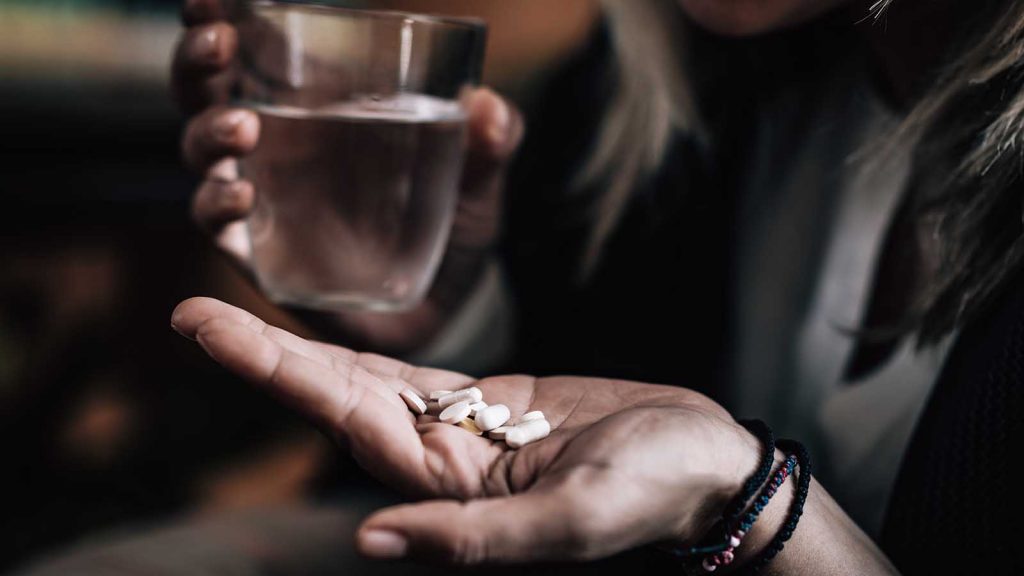Which Drugs Come With A Risk Of Overdose?
What Is An Overdose?
A drug overdose occurs when an individual uses too much of a substance, or at least enough for the substance to have a harmful effect on the body. A person may experience an overdose if they take more than the recommended amount of a prescription or over the counter medication. Drug overdoses could also occur if someone misuses another legal or illegal substance. Additionally, individuals who have a high sensitivity to certain drugs may experience an overdose even when they only take what is prescribed to them.
Overdoses may be either accidental or intentional. Risk factors for drug overdose include the improper storage of drugs in the home, not knowing the dosage instructions for your prescription, and having a history of addiction or a mental health condition.

Signs & Symptoms of A Drug Overdose
If you or a loved one has taken an illegal drug or misused a prescription recently, there may be a risk for overdose. While symptoms vary depending on the drug someone used and how much they took, there are some general signs and side effects to help someone determine if they or someone they know is having an overdose. They include:
- Agitation
- Aggression or violence
- Difficulty walking
- Trouble breathing
- Drowsiness
- Sleepiness
- Confusion
- Sweating
- Chest pain
- Abdominal pain
- Nausea
- Vomiting
- Tremors
- Convulsions
- Enlarged pupils
- Hallucinations
- Delusions
- Blood pressure problems
- Changes in temperature
- Change in pulse rate
Since these symptoms could result in life-threatening complications, it’s important to seek medical attention if you think that you or someone you know might be overdosing. However, some individuals may not be on high alert if they don’t think the drug they’re using comes with a risk of overdose. However, practically every prescription, over the counter, and illicit drug comes with this risk.
Can You Overdose On All Drugs?
Preventing An Overdose
To prevent you and your family from experiencing an overdose, start by removing all opportunities for accidental overdose. For example, if you have children in the house, be sure to keep medications out of their reach. Also, it’s important to remove triggers for intentional overdose if you or a loved one experiences depression or suicidal thoughts. Furthermore, all medications should be used as directed and should not be combined with alcohol.
While quitting is the best way to prevent an overdose, we know that this isn’t always an option. If you take any drugs for medical reasons, you should be able to prevent an overdose as long as you are honest with your healthcare provider and use your medication/s responsibly.
How To Treat A Drug Overdose
If you witness someone experiencing a drug overdose, or if you have one and are able to do so, make sure you seek medical treatment immediately. Since some doctor’s offices may not offer overdose treatment, the best option is to visit the emergency department at your local hospital.
Once an individual who is overdosing is at the hospital, treatment can begin. The type of treatment that is administered will depend on what drug an individual used and how much of it they took. Some initial treatment methods for drug overdose may include:
- Clearing the airway or inserting a breathing tube
- Including vomit to remove the substance
- Giving activated charcoal, which absorbs drugs in the digestive tract
- Giving intravenous fluids to remove substances from the body quickly
- Pumping the stomach to remove substances from the body
One of the above methods should clean the body of any substances that are causing the overdose. Additionally, a healthcare provider may decide to use certain prescriptions that are designed to ease the symptoms of a drug overdose.
To learn more about overdoses and treatment options for someone struggling with addiction, contact our team of substance abuse specialists by giving us a call at 267.209.7313.



